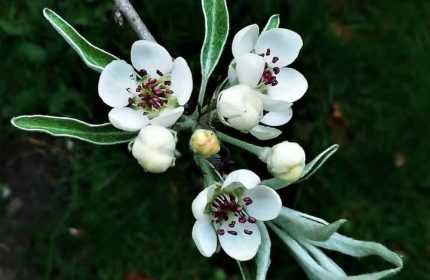Attenborough Takes Action For Butterflies
As the world’s largest butterfly survey gets underway, Butterfly Conservation president Sir David Attenborough reflects how we can boost populations and how important these creatures are to the garden
Since creating a meadow area in his own back garden three years ago, Sir David Attenborough has enjoyed an influx of wildlife and is this year hoping to see a wide range of butterflies visiting it.
“I have an area of meadow turf with a mown lawn walkway which winds its way through it and I see a number of different butterflies – meadow browns, cabbage whites and occasionally tortoiseshells. I haven’t seen a red admiral for a number of years though, but I used to.”
As president of the charity Butterfly Conservation, Sir David will be taking part in this year’s Big Butterfly Count, in which members of the public are asked to report sightings to give the charity a clearer picture of the nation’s butterflies. This, in turn, gives us a view of the state of the countryside as a whole.
Garden favourite, the small tortoiseshell enjoyed its best year for a decade last summer, while peacocks, small and large white also had good years, but migrants including red admirals and painted lady struggled.
“The count helps us a great deal,” says Sir David. “It provides a recognition chart from a scientifically accurate, huge army of observers whose results can give you all kinds of important information.
“What we know is that last year was a good year for butterflies in that a lot of species came back or increased in numbers, but the decline in British butterflies is still going on. Last year was an optimistic blip.”
Three quarters of the UK’s butterflies are in decline and one third are in danger of extinction, according to the charity.
“This is bad news for butterflies and it is bad news for the UK’s birds, bees, bats and other wildlife. Butterflies are a key indicator species of the health of our environment – if they are struggling, then many other species are struggling also,” says Sir David.
“Butterflies are pollinators, pollinating the countryside. To have pollinators in the countryside means you have a healthy and renewing countryside. If you lose them, you will lose a great deal.”
Butterfly numbers have declined because the numbers of wild places left in the countryside have diminished as agriculture has become more efficient, he says.
“But if you put together all our suburban gardens, they form a huge area in the British landscape and they can help replace those wild places that agriculture has taken over.”
He says gardeners can all do their bit to help butterflies.
“Gardeners can take a small patch of their cultivated, cosseted garden to go wild. You may not like nettles or brambles, but they provide food for quite a range of butterflies.”
Plants including buddleia, Verbena bonariensis, lavender, perennial wallflowers and marjoram are all magnets for butterflies. Other plants which attract them include hebes, Michaelmas daisies, cosmos, phlox, pinks and heleniums.
Choose sunny, sheltered spots to plant nectar-rich flowers and try to provide flowers right through the butterfly season. Spring flowers are vital for butterflies coming out of hibernation while autumn flowers help butterflies build up their reserves for winter.
UK butterflies rallied last summer following their worst year on record but numbers were still below average.
Dr Tom Brereton, head of monitoring at Butterfly Conservation, says: “The recovery of butterflies in 2013 was highly welcome but there is still a long way to go before butterflies return to former glories.
“Our ongoing monitoring efforts will be vital in assessing whether we are on track to reverse butterfly declines and rebuild a healthy countryside.”
:: The Big Butterfly Count runs until Sunday, August 10. For information and help with identifying butterfly types visit www.bigbutterflycount.org
Latest posts by Sally - Silversurfer's Editor (see all)
- Graham Norton’s funniest interviews - April 2, 2025
- How to help hay fever sufferers make Springtimemore comfortable - April 1, 2025
- Win a cruise of your choice with Fred. Olsen Cruise Lines - April 1, 2025
- Win a 2025/26 Ashes Experience for Two! - April 1, 2025
- Win ONE of THREE pairs of tickets for BBC Gardeners’ World Live at the NEC Birmingham - April 1, 2025





















